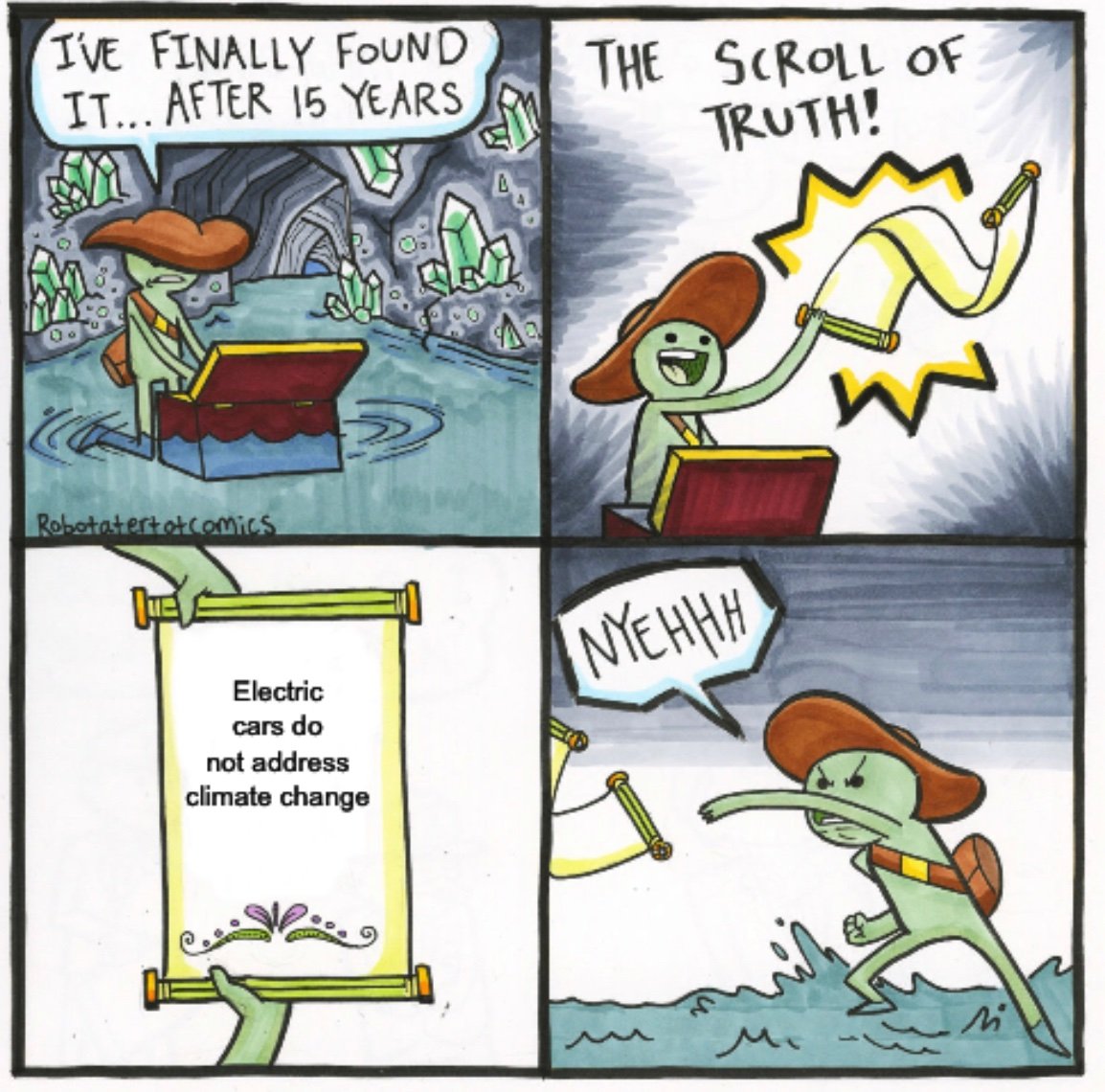Fuck Cars
A place to discuss problems of car centric infrastructure or how it hurts us all. Let's explore the bad world of Cars!
Rules
1. Be Civil
You may not agree on ideas, but please do not be needlessly rude or insulting to other people in this community.
2. No hate speech
Don't discriminate or disparage people on the basis of sex, gender, race, ethnicity, nationality, religion, or sexuality.
3. Don't harass people
Don't follow people you disagree with into multiple threads or into PMs to insult, disparage, or otherwise attack them. And certainly don't doxx any non-public figures.
4. Stay on topic
This community is about cars, their externalities in society, car-dependency, and solutions to these.
5. No reposts
Do not repost content that has already been posted in this community.
Moderator discretion will be used to judge reports with regard to the above rules.
Posting Guidelines
In the absence of a flair system on lemmy yet, let’s try to make it easier to scan through posts by type in here by using tags:
- [meta] for discussions/suggestions about this community itself
- [article] for news articles
- [blog] for any blog-style content
- [video] for video resources
- [academic] for academic studies and sources
- [discussion] for text post questions, rants, and/or discussions
- [meme] for memes
- [image] for any non-meme images
- [misc] for anything that doesn’t fall cleanly into any of the other categories
Recommended communities:
view the rest of the comments

In that scenario electric or hydrogen cars would probably be better for global food supplies. Especially in a world of increasing food scarcity due to climate change, having poor people starve while rich people turn food into fuel for their cars doesn't seem fair. You can put solar panels or wind turbines on barren land and not take up valuable arable land.
It'd be better then releasing more carbon and further exasperating the problems, but I think there are better solutions.
Nowhere in my comment did I say anything about using fuels that would compete with food crops. Biodiesel is a product usually made from waste.
I think their might be a naming issue here. I was going by the wikipedia article for biodiesel which says it's made directly from crops and it's
Which seems like what your talking about. It doesn't seem to point to a name for that though, maybe just biofuel. It does say some biodiesel is made from waste oil but also that:
And that about half of current U.S production is from virgin oil feedstock. 10% of all grain is already used for biofuel, and that's just to cover the bit of ethanol used for petrol, if we transitioned even a fraction of cars to full biofuel that number would go up by a lot.
There's also still an opportunity cost with even the waste oil. If we have the capacity to collect and refine waste oils into fuel, then we can probably also just recycle it and refine it back to food standards.
In Australia we have chip shops along the lonely roads through the desert. Some of them are so isolated there's no mains electricity. Recently they became electric car accessible by attaching car charge stations to biodiesel generators. The waste oil from frying the chips powers the electric cars.
I should have been more clear: yes, biodiesel can come from things that compete with food crops, but the biodiesel made from waste is the only kind I endorse.
(Fun fact: the kind I use in my car is made from chicken fat, a byproduct of all the chicken processing plants we have here in northern Georgia.)
It's also possible to make synthetic gasoline, by the way, and I'm only endorsing making it from CO2 produced as a byproduct of something else (and, pointedly, not coal gasification or steam reforming of natural gas).
That's where this part of my comment came in: